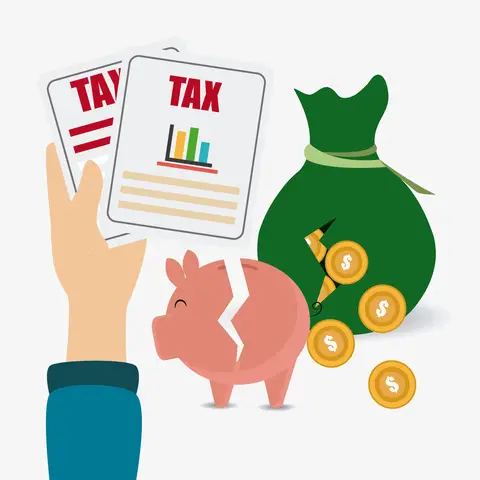 Cash is tight and you are in a quandary about whether to pay your quarterly employment taxes to the federal government or pay your supplier for inventory you need to stay in business. A rock-and-a-hard-place barely describes the dilemma.
Cash is tight and you are in a quandary about whether to pay your quarterly employment taxes to the federal government or pay your supplier for inventory you need to stay in business. A rock-and-a-hard-place barely describes the dilemma.
Here are some thoughts on what to do.
Understand your exposure for unpaid employment taxes
A “responsible person,” who is an owner or other person authorized to make payment decisions, is 100% personally liable for willfully failing to pay trust fund taxes (withholding from employees’ wages for income taxes and their share of FICA). The trust fund recovery penalty (TFRP) may result where, for example, an owner knows that the trust fund taxes are owed but pays the rent instead; no bad motive or evil intent is required for the penalty to apply. There’s more about this penalty in an article in the Journal of Accountancy.
There’s also an obligation on employers to pay the employer share of FICA and FUTA (federal unemployment tax). Obviously, the longer the delinquency for these taxes persists, the greater the payment burden becomes because what is owed is increased by interest and penalties.
Use a special installment agreement
Spread the payment of employment taxes over time? A small business with employees can obtain an In-Business Trust Fund Express Installment Agreement (IBTF-Express IA). This agreement with the IRS allows the business to pay off employment taxes owed in an orderly manner and avoid harsh collection activities by the government.
Eligibility for an IBTF-Express IA usually does not require a financial statement or even any financial verification as part of the application process.
Eligibility
A small business can qualify for an IBTF-Express IA if all of the following qualifications are met:
- Employment taxes owed are for the current year or the prior year.
- The amount owed is $25,000 or less at the time the agreement is established. This dollar limit includes taxes, interest, and penalties. If more than $25,000 is owed, the business can pay down the liability to $25,000 before entering into the agreement in order to qualify.
- The debt must be fullly paid within 24-months or prior to the Collection Statute Expiration Date (CSED), whichever is earlier.
- The business must enroll in a Direct Debit installment agreement (DDIA) if the amount owed is between $10,000 and $25,000.
- The business must be compliant with all filing and payment requirements.
How to apply
There are several ways to request an IBTF-Express IA:
- Apply online.
- Call the IRS Business and Specialty Tax assistance line (800-829-4933).
- If the business has already received a bill or notice from the IRS, call the number provided here.
Additional thought
Hopefully you’ll never find yourself with the impossible choice of having to decide which creditors to pay — the government or another creditor. To prevent this occurrence, consider the following:
- Monitor cash flow so that sufficient funds are on hand to pay taxes when due.
- Segregate funds needed for employment taxes from the general business bank account so you won’t be tempted to use the tax money for other purposes.
- Work with a CPA to address employment tax concerns.


